Archives: Documents
-
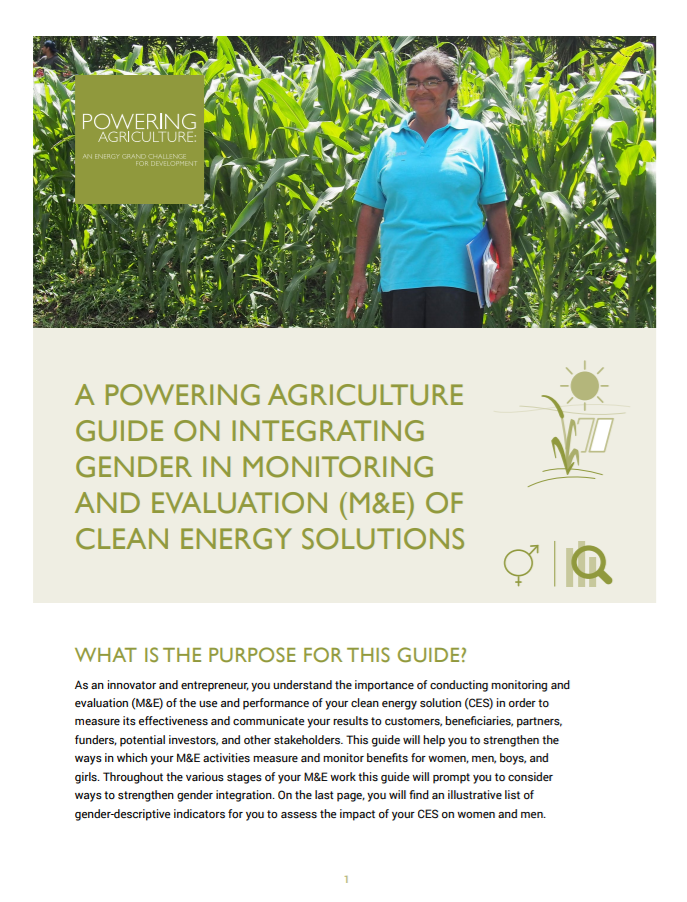
Powering Agriculture: Guide on Integrating Gender in Monitoring and Evaluation (M&E) of Clean Energy Solutions
-
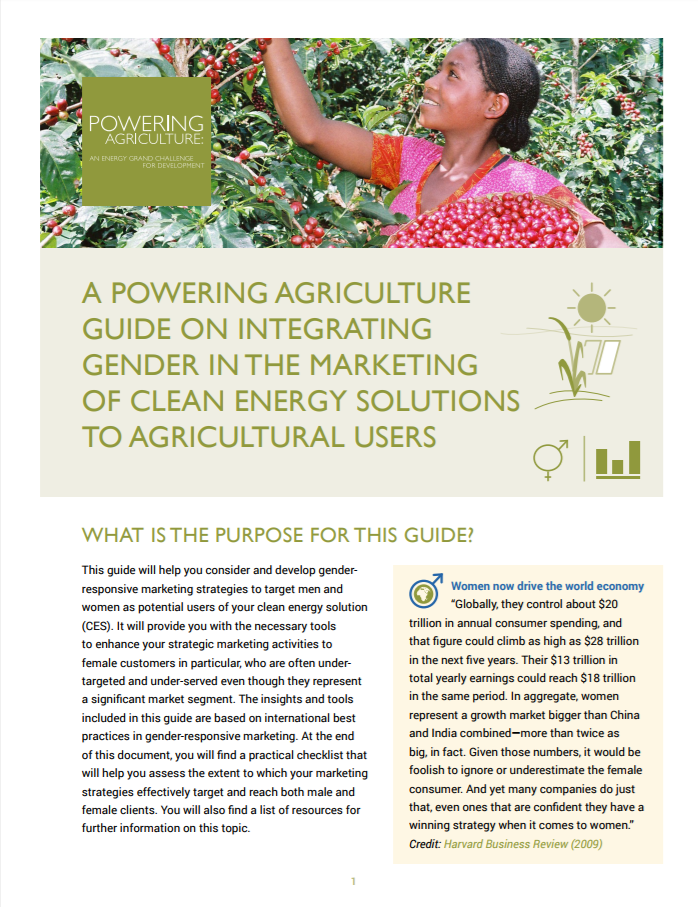
Powering Agriculture: Guide on Integrating Gender in the Marketing of Clean Energy Solutions to Agricultural Users
-
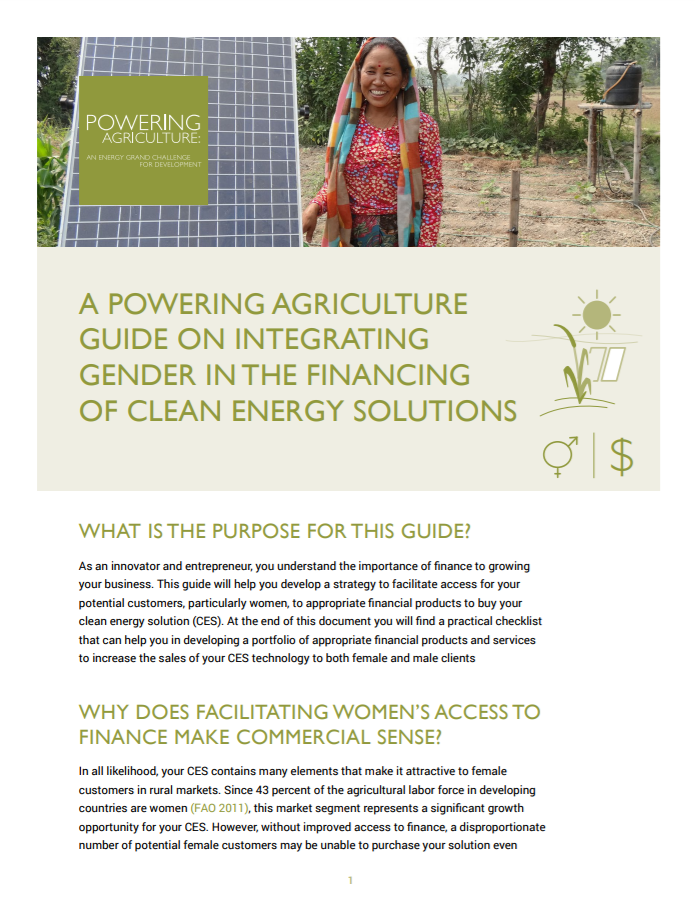
Powering Agriculture: Guide on Integrating Gender in the Financing of Clean Energy Solutions
-
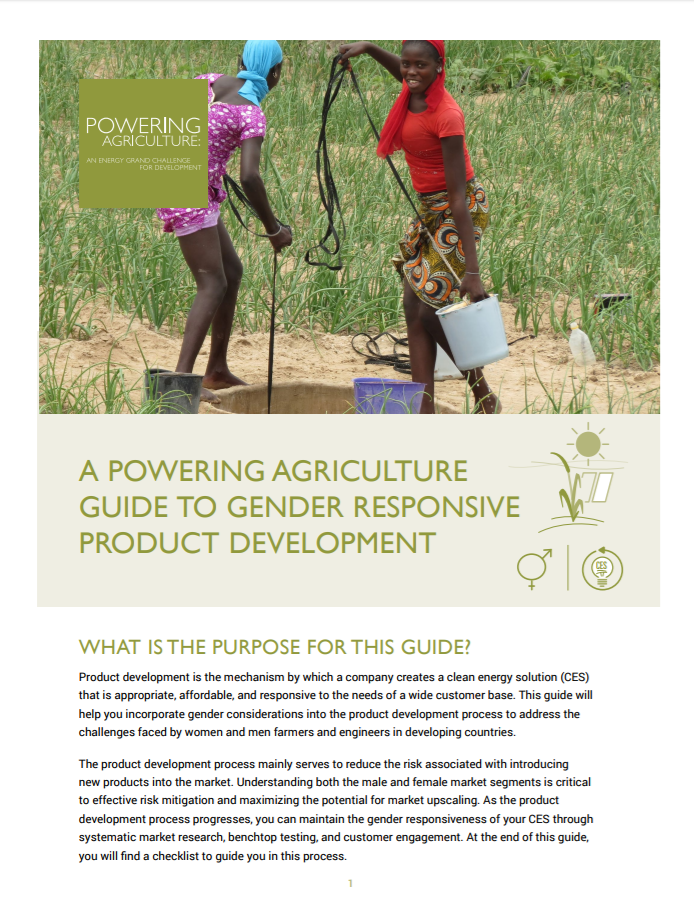
Powering Agriculture: Guide to Gender Responsive Product Development
-
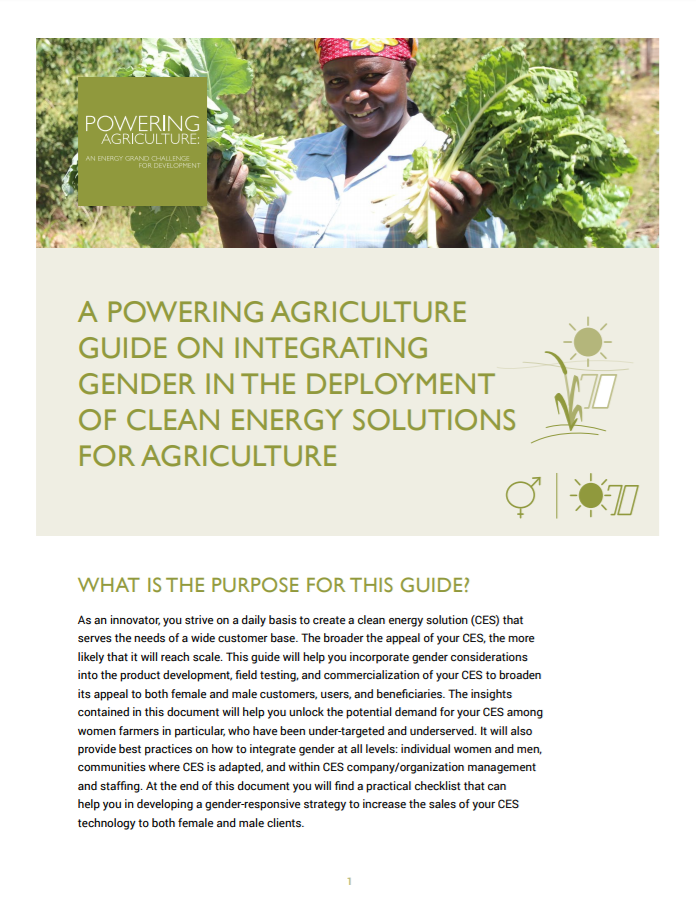
Powering Agriculture – Guide on Integrating Gender in the Deployment of Clean Energy Solutions for Agriculture
-
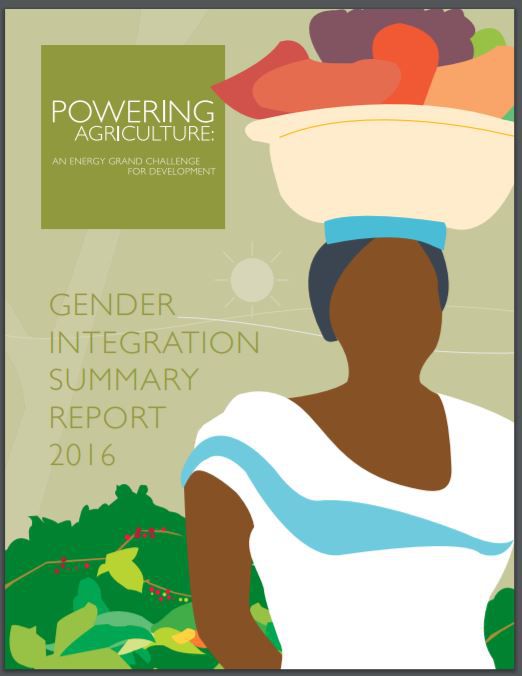
Powering Agriculture – Gender Integration Summary Report 2016
-

Energy and women and girls
Energy has undoubtedly become a significant part of the development agenda, a reality reflected in the many claims made by members of the development community about the importance of energy access for improving the lives of the poor, especially women and girls. This discourse includes an implicit assumption that, because of the burdens of energy…
-
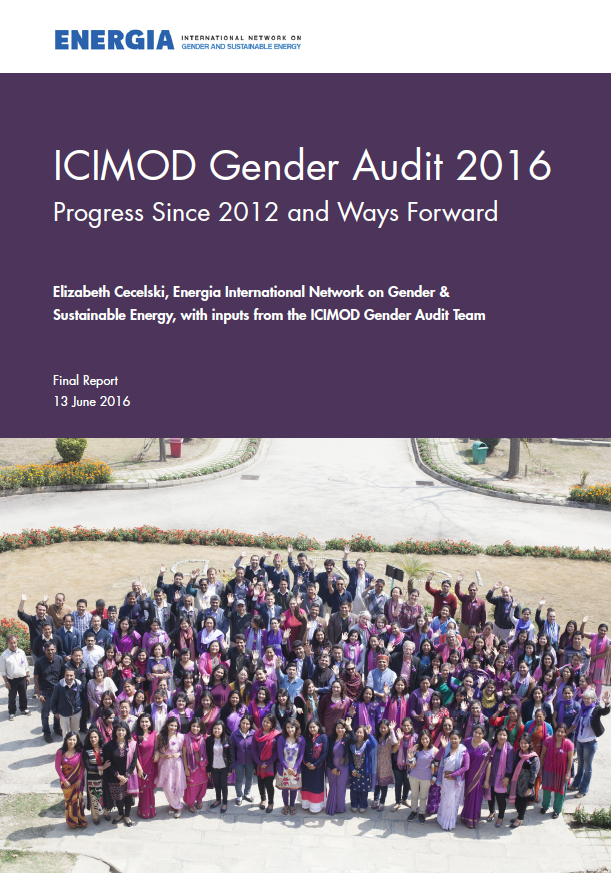
ICIMOD Gender Audit 2016
ICIMOD has placed itself at the cutting edge of gender mainstreaming in the Himalaya region, by successfully developing a gender equity policy with strong management support; establishing a high level of gender expertise within the organization; including components, activities and M&E indicators on gender in Regional Programs and the strategic framework; developing many good practices…
-
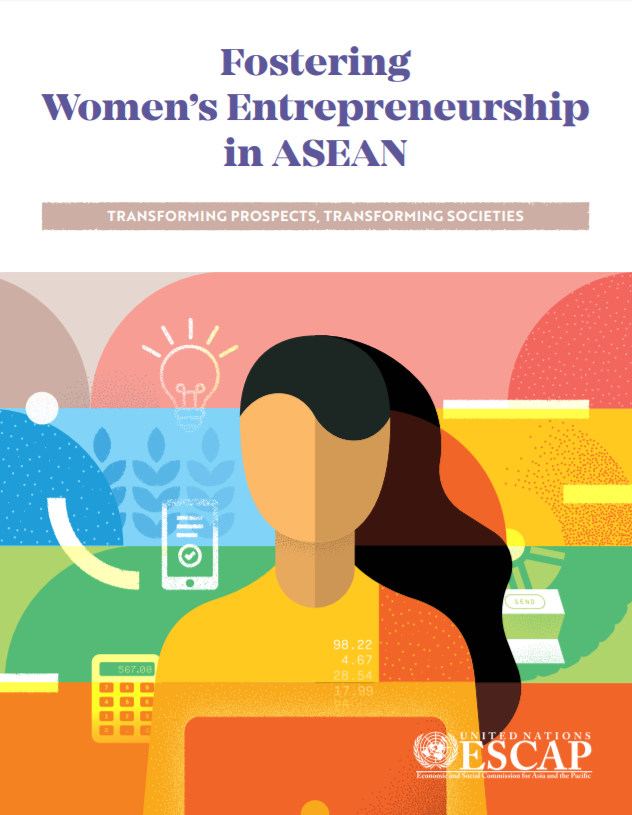
Fostering women’s entrepreneurship in ASEAN
In its recent publication “Fostering Women’s Entrepreneurship in ASEAN: Transforming Prospects, Transforming Societies” the United Nations Economic and Social Commission for Asia and the Pacific (ESCAP) proposes critical actions that can be taken by ASEAN Governments to address the particular constraints facing women entrepreneurs. Those actions are foreseen to be taken in conjunction with other…
-
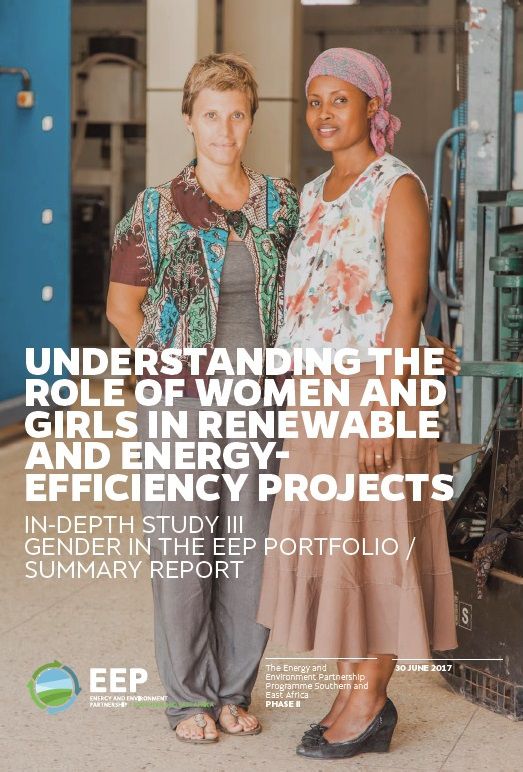
Understanding the role of women and girls in renewable and energy efficiency projects
As consumers and users of energy, women and girls benefit the most from clean, efficient energy solutions. In rural areas, where access to modern energy sources is lacking, everyday household activities such as cooking and cleaning can be labour and time intensive. The emissions from the use of biomass fuels present many health risks to…
-
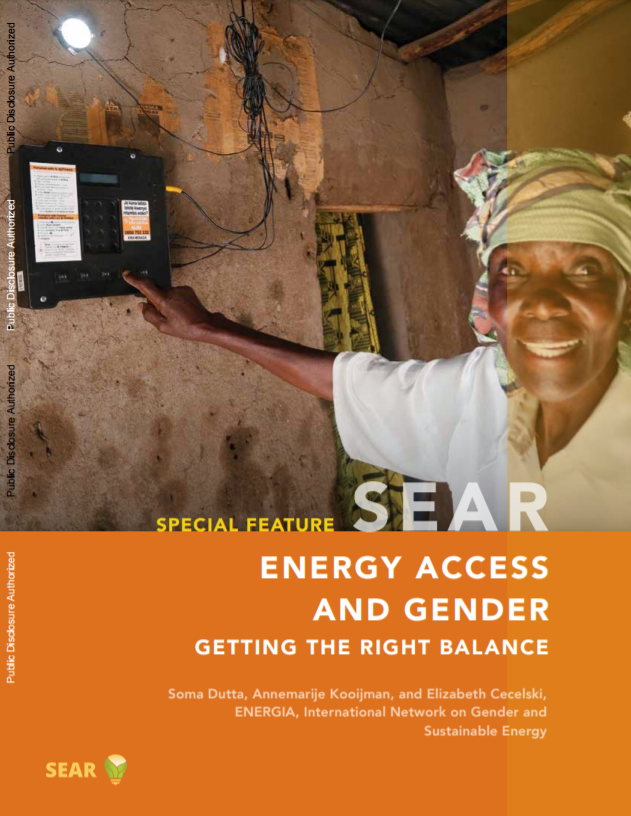
SEAR Special Feature – Energy access and gender: Getting the right balance.
-
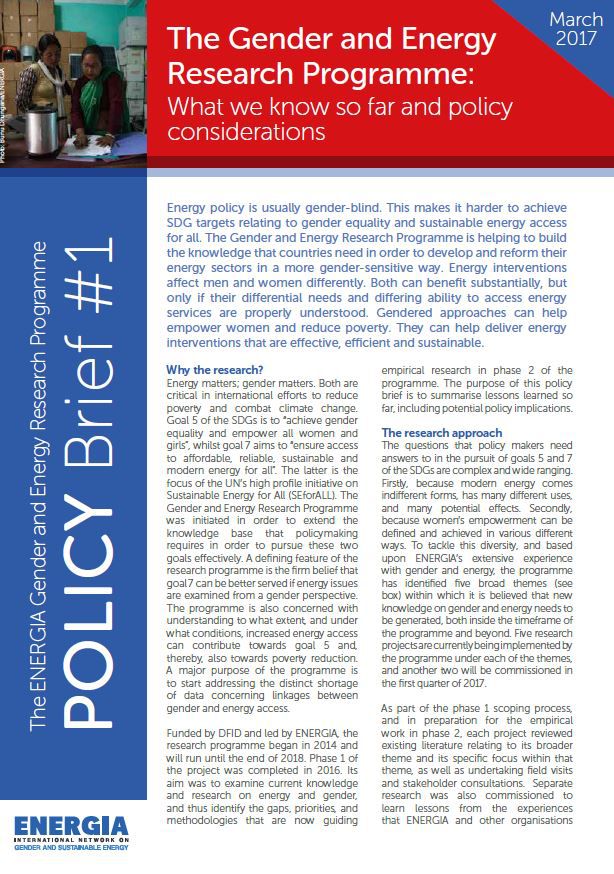
The Gender and Energy Research Programme: What we know so far and policy considerations
Energy policy is usually gender-blind. This makes it harder to achieve SDG targets relating to gender equality and sustainable energy access for all. The Gender and Energy Research Programme is helping to build the knowledge that countries need in order to develop and reform their energy sectors in a more gender-sensitive way. Energy interventions affect…

